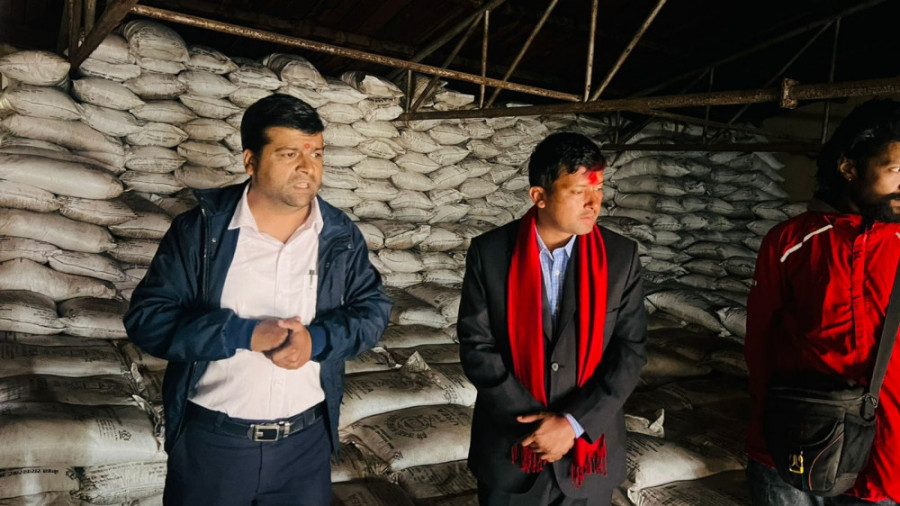National
Lawmaker-elects trying to act as executives even before swearing-in
Experts on parliamentary affairs say the elected representatives should instead focus on how to perform their roles in the House effectively.
Binod Ghimire
On Monday, Mahesh Bartaula, a newly elected member of the House of Representatives from Makwanpur-2, inspected Krishi Samagri Kendra in Hetauda and asked the officials why the farmers were not getting chemical fertilisers. He also directed Prakash Gyawali, director of the centre, to immediately start distributing fertiliser to the farmers in his constituency.
Bartuala defeated Birodh Khatiwada, former minister and a Standing Committee member of the CPN (Unified Socialist), in the November 20 parliamentary election. He started directing the officials just a day after receiving the certificate of election.
A day later, Deepak Singh, a newly elected member from Makwanpur-1, reached the Hetauda Hospital for inspection. Singh not just said he would work towards improving the health services in the district but also asked the hospital authority to improve its services right away.
The vote count for the federal and provincial assembly elections is on the verge of conclusion. As of Thursday, 162 members like Bartula and Singh have been elected under the first-past-the-past system. Though they have received their certificates, they are yet to take the oath of office to formally become lawmakers.
However, many of them have already started acting not just as lawmakers but more than that.
Laxmi Prasad Gautam, joint secretary of law at the Parliament Secretariat, says those who have been elected to the House can behave like lawmakers only after they are administered the oath. Gautam says that every individual, not just the elected representatives, can seek updates from the authority on any development project or an issue of their concern. But as lawmakers they cannot directly instruct the government agencies to do something.
“As the people’s representatives, they [lawmakers] can definitely take updates on every activity of public concern,” said Gautam. “However, I don’t think any law authorises them to issue directives.”
MP-elects from the newly formed Rastriya Swatantra Party that has performed exceptionally well in the polls have left others behind in ordering government agencies. A few days earlier, RSP President Rabi Lamichhane visited a road section in his Chitwan-2 constituency with officials where he grilled them why the works hadn’t been completed.
In a video widely circulated on social media, he is heard asking the officials to ensure the road section is completed within the deadline. “No excuse for further delay is accepted,” he is heard saying.
Following in his footsteps is Hari Dhakal, a recently elected member of the lower house from Chitwan-1 for Lamichhane’s party. A few days earlier, he reached the construction site of a bridge over Pampha Khola in Rapti Municipality-7. From there he called the constructor not to delay the construction on any pretext.
“I don’t want to hear anything. I want the bridge to be completed by the end of the current fiscal year, that’s it. Only thing I understand is you are completing the bridge in the next seven months,” he is heard saying in a widely circulated video.
Experts on parliamentary affairs say the newly elected representatives must understand that they are not activists and their position demands some decorum. “Until those newly elected formally take responsibility, they should focus on studying how they should act in Parliament and what their roles and responsibilities are,” Som Bahadur Thapa, former secretary of Parliament, told the Post. “They must demonstrate maturity in their actions.”
Lawmakers’ role is policy formulation and scrutiny over government through Parliament. “Parliament is a proper channel to direct the government and its subordinates,” said Thapa. “Lawmakers should not try to function as executives.”




 10.12°C Kathmandu
10.12°C Kathmandu















